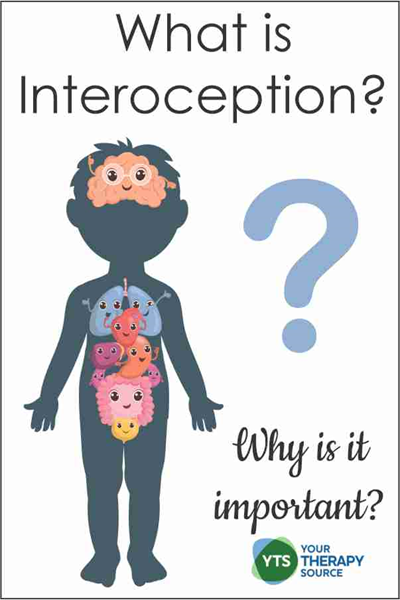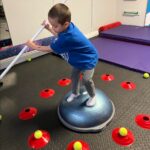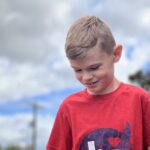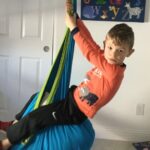Play With a Purpose
Our play with a purpose approach allows your child to have a safe and fun place to play with bigger goals in mind. Incorporating integration of primitive reflexes, motor skill development, sensory integration, body awareness, emotional and self-regulation is always a part of our sessions. Before a child can retain information, control impulses, engage with others and solve problems they must learn how to regulate their bodies. We can help them do this through using play-based activities.
Primitive Reflex Integration
Primitive reflex checks are a part of the screening process. These are typically present in infants and are considered natural and necessary for early development. These reflexes are automatic movements or responses that occur in response to certain stimuli. Normally these reflexes integrate and disappear as the baby grows and the central nervous system matures. A child who is born premature, has had medical issues as kids and often neurodiverse kids are more likely to have underdeveloped primitive reflexes and an underdeveloped sensory system. If the brain holds on to the reflex, it’s as if it creates a block because it keeps triggering the involuntary movements from a reflex that shouldn’t be there anymore. These remaining primitive reflexes can be integrated with play! When integrated this helps improve social skills, motor development, ocular skills and brain organization.
Proprioception
Proprioception is a sense that helps us understand where our body is in space. Proprioceptive input has a calming effect to help us focus and regulate by grounding our nervous system. It can help reduce anxiety, support emotional regulation, increase body awareness and allow us to best engage in learning. Examples of proprioception in play are: tug of war, pillow fights, carrying groceries, tight cuddles, swimming, drinking a thick smoothie and eating crunchy snacks.
Vestibular Function
Purposeful Play
Primitive Reflex Integration
Motor skill development
Sensory integration
Body awareness
Emotional & Self-Regulation
Proprioception
Vestibular function
At BTG we have various swings, trampolines, and a climbing wall for the kids to play on. These activities can improve body awareness, develop motor skills, create a calming effect, and improve focus and attention.
Explore More From Related Topics

Interoception
Interoception is the perception and awareness of internal bodily sensations such as pain, sleep, toileting, body temperature, hunger and thirst cues.

Motor Skills
Purposeful motor skills are intentional and goal-directed movements that enable individuals to interact effectively with their environment.

Self-Regulation
Self-Regulation is important for kids to manage emotions, focus, make good choices, and develop resilence.

Sensory Processing
Sensory processing refers to how our nervous system receives and interprets information from the environment through our senses and how we respond to that information.
